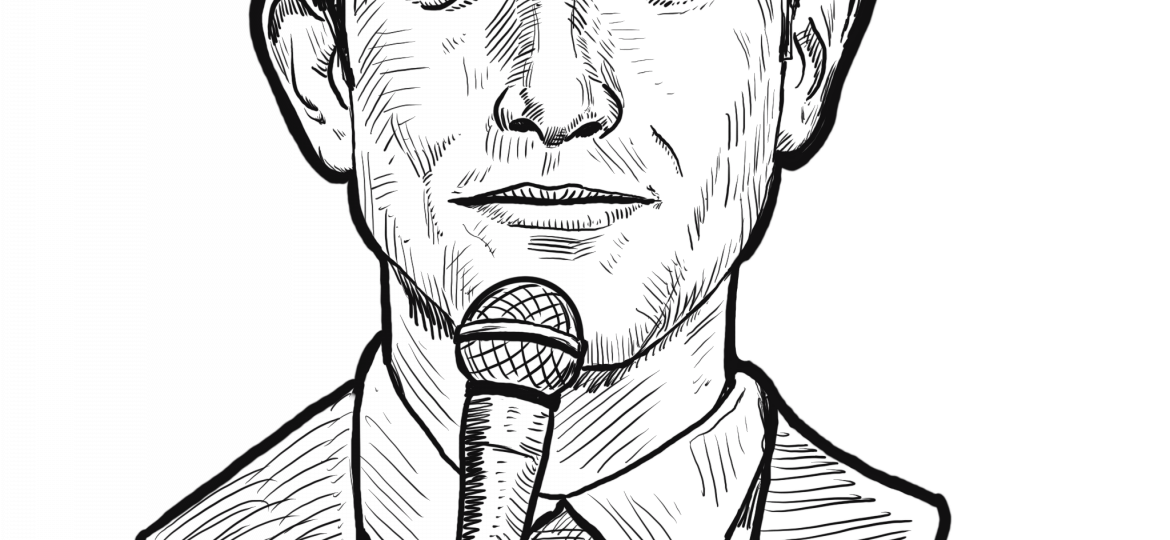
John Mulaney entered the pandemic with a wife and an upstanding reputation. In the time since, he’s suffered a drug-related relapse, gotten divorced, and had a child with another woman.
For those who followed Mulaney pre-pandemic, it seemed hard to picture the comedian putting a foot wrong. Mulaney carved out a prominent niche in the comedy world with his endlessly quotable one-liners and his endearing, unthreatening persona. At a time when the #MeToo movement brought an overdue reckoning to many male comedians, Mulaney was a haven of security, a comfort-watch of whimsical self-effacement and easy decorum. In his 2018 special, “Kid Gorgeous,” even Mulaney himself ridiculed the idea of embodying a more despicable persona, wielding a sarcastic, caricatured voice (reminiscent of certain #MeToo perpetrators) to declare, “My wife’s a b****, and I do not like her!” Jokes like these can only work if the audience recognizes the performer’s satire — which wasn’t hard to catch, as Mulaney made frequent and affectionate reference to his wife, artist Anna Marie Tendler, across several specials.
This reputation was bolstered by his openness about his drug and alcohol addiction. Mulaney was a master of the confessional standup form, drawing viewers into the darker details of his past, while alleviating their concern with his trademark humor. Every previous special mentions his addiction, forever in the unthreatening realm of gentle self-deprecation. Observing Mulaney onstage, clean-shaven and adorned in a tailored suit, these anecdotes seem like a ghost of the past – or better yet, a vanquished enemy. Taking Mulaney’s success at face value, it’s easy to relegate his struggles to a former version of himself, a trope that media and consumers love to assign to their favorite public figures.
Then came the pandemic. Whether COVID-stress was a leading factor or not, Mulaney relapsed in late 2020, culminating in an intervention that December and a stint in rehab early the next year. In May 2021, reports dropped that he and Tendler had separated, and by the following January they were divorced. Added to the mix was his new relationship with actress Olivia Munn, with whom he had his first child in late November 2021.
Here was a new John Mulaney that the public hadn’t seen before. The timeline of Munn’s pregnancy suggests that, at best, he had moved on from his marriage with Tendler implausibly fast or he had an outright affair at worst. While both parties have kept relative silence on their divorce, Mulaney has been open about his son, Malcolm. Mulaney’s frequent Instagram posts with Malcolm may contrast oddly with fans’ memories of Mulaney claiming not to want children during both shows he released while married to Tendler.
As for the relapse, Mulaney has given his audience “Baby J,” his newest special and a stark departure from his previous catalog. Gone is the high energy charisma, the spitfire barrage of jokes, the old Mulaney. He stands on the other side of some life-altering events, and in response, his act doubles down on his confessional tone. This time, the confession carries with it a true, down-to-earth gravity. For the first time, he shows his audiences the monsters that addiction has brought into his head. He doesn’t shy away from exposing the more despicable sides of his character — the emotional manipulation at his own intervention, the seedy ways he procured drug money — and ultimately chipping away at his old persona. While the humor assures us we are still in fact watching John Mulaney, many comedic tropes are sacrificed in the name of storytelling.
This tonal shift shows that Mulaney is highly aware of his evolving reputation, which he directly acknowledges throughout the special. Even in the early minutes of the show, he addresses an 11-year-old in the audience to forewarn the boy of this shift, ultimately landing on the phrasing, “I have kind of a different vibe now.” Addiction is no longer the fodder of a whimsical past. It’s a life-threatening illness that he grapples with every day. These concerns are more dire than questions of likeability raised in earlier specials. Again, a quote from “Kid Gorgeous” comes to mind: “My wife said walking around with me is like walking around with someone who’s running for mayor of nothing.” He’s no longer chasing public acceptance, and even if he were, he knows the court of public opinion no longer favors him.
What can we make of this situation? Firstly, what we should have known all along – John Mulaney is human. He has made mistakes and subjected himself and others to pain, and his comedic retellings can’t ethically erase these wrongdoings. The character he plays onstage can’t be judged as the person underneath. To assume as much is reductive and unfair – both to his talent as a writer-comedian and him as an individual. He shouldn’t be held aloft out of respect for his former image, nor should he be condemned for it. Though Mulaney may well have personal reparations to make, “Baby J” represents a shrewd step towards acknowledging his faults. Gone is the glitzy, ultra-refined comedy of Mulaney’s earlier specials, and in its place is a depth we haven’t seen before.
Lance Halberg is from Winona, Minn.
His major is English.

